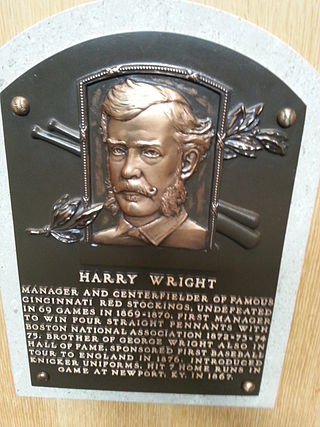
The Veterans Committee is the popular name of various committees of the National Baseball Hall of Fame and Museum that elect participants other than recently retired players.

Elections to the Baseball Hall of Fame for 2001 followed the system in use since 1995. The Baseball Writers' Association of America (BBWAA) voted by mail to select from recent major league players and elected two: Kirby Puckett and Dave Winfield. The Veterans Committee met in closed sessions and selected two people from multiple classified ballots: Bill Mazeroski and Hilton Smith.
Elections to the Baseball Hall of Fame for 1999 followed the system in use since 1995. The Baseball Writers' Association of America (BBWAA) voted by mail to select from recent major league players and elected three: George Brett, Nolan Ryan, and Robin Yount. The Veterans Committee met in closed sessions and selected four people from multiple classified ballots: Orlando Cepeda, Nestor Chylak, Frank Selee, and Smokey Joe Williams.

Elections to the Baseball Hall of Fame for 1996 followed the system in use since 1995. The Baseball Writers' Association of America (BBWAA) voted by mail to select from recent major league players but no one tallied the necessary 75% support.
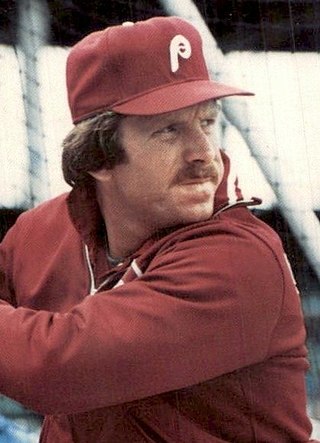
Elections to the Baseball Hall of Fame for 1995 introduced a system of multiple classified ballots for consideration by the Veterans Committee. That group met in closed sessions as usual and selected four people: Richie Ashburn, Leon Day, William Hulbert, and Vic Willis. Day and Hulbert were named from the new ballots for Negro leagues and 19th century figures.
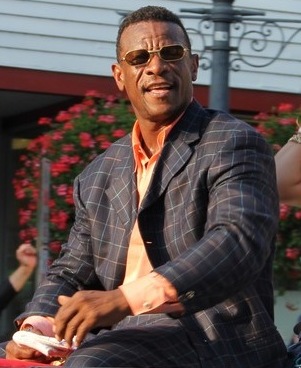
Elections to the Baseball Hall of Fame for 2009 proceeded according to revised rules enacted in 2001 and further revamped in 2007. The Baseball Writers' Association of America (BBWAA) held an election to select from among recent players, and elected Jim Rice and Rickey Henderson.
Elections to the Baseball Hall of Fame for 1980 followed the system in place since 1978. The Baseball Writers' Association of America (BBWAA) voted by mail to select from recent major league players and elected Al Kaline and Duke Snider. The Veterans Committee met in closed sessions to consider older major league players as well as managers, umpires, executives, and figures from the Negro leagues. It selected outfielder Chuck Klein and Boston Red Sox owner Tom Yawkey, both deceased. A formal induction ceremony was held in Cooperstown, New York, on August 3, 1980, with Commissioner of Baseball Bowie Kuhn presiding.

Elections to the Baseball Hall of Fame for 2010 proceeded according to rules enacted in 2001 and revised in 2007. As always, the Baseball Writers' Association of America (BBWAA) voted by mail to select from a ballot of recent players; one player was elected, Andre Dawson.
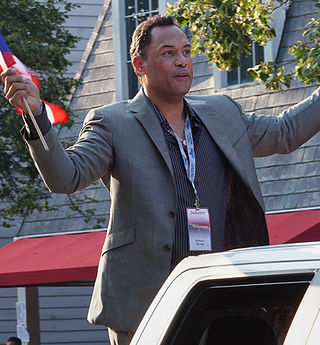
Elections to the National Baseball Hall of Fame for 2011 proceeded according to the rules revised in July 2010. As in the past, the Baseball Writers' Association of America (BBWAA) voted by mail to select from a ballot of recently retired players. The new Expansion Era Committee, which replaced the Veterans Committee, convened in December 2010 to select from an Expansion Era ballot of long-retired players and non-playing personnel who made their greatest contributions to the sport from 1973 to the present time, called the "Expansion Era" by the Hall of Fame.
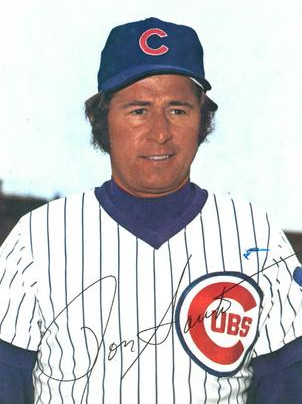
Elections to the Baseball Hall of Fame for 2012 proceeded according to rules most recently revised in July 2010. As in the past, the Baseball Writers' Association of America (BBWAA) voted by mail to select from a ballot of recently retired players, with results announced on January 9, 2012. The Golden Era Committee, the second of three new era committees established by the July 2010 rules change, replacing the Veterans Committee, convened early in December 2011 to select from a Golden Era ballot of retired players and non-playing personnel who made their greatest contributions to the sport between 1947 and 1972, called the "Golden Era" by the Hall of Fame.
Elections to the Baseball Hall of Fame for 2014 proceeded according to rules most recently revised in July 2010. As in the past, the Baseball Writers' Association of America (BBWAA) voted by mail to select from a ballot of recently retired players, with results announced on January 8, 2014. The Expansion Era Committee, one of three voting panels that replaced the more broadly defined Veterans Committee following the July 2010 rules change, convened early in December 2013 to select from a ballot of retired players and non-playing personnel who made their greatest contributions to the sport after 1972, a time frame that the Hall of Fame calls the "Expansion Era".

Elections to the Baseball Hall of Fame for 2015 proceeded according to rules most recently amended in 2014. As in the past, the Baseball Writers' Association of America (BBWAA) voted by mail to select from a ballot of recently retired players, with results announced on January 6, 2015. Randy Johnson, Pedro Martínez, John Smoltz and Craig Biggio were elected to the Hall of Fame. It was the first time since 1955 that the BBWAA elected four players in one year.

Elections to the Baseball Hall of Fame for 2016 proceeded according to rules most recently amended in 2015. As in the past, the Baseball Writers' Association of America (BBWAA) voted by mail to select from a ballot of recently retired players, with results announced on January 6, 2016; Ken Griffey Jr. and Mike Piazza were elected to the Hall of Fame.
Elections to the Baseball Hall of Fame for 2017 proceeded according to rules most recently amended in 2016. As in the past, the Baseball Writers' Association of America (BBWAA) voted by mail to select from a ballot of recently retired players, with results announced on January 18, 2017. The BBWAA elected Jeff Bagwell, Tim Raines, and Iván Rodríguez to the Hall of Fame.
Elections to the National Baseball Hall of Fame for 2018 proceeded according to rules most recently amended in 2016. As in the past, the Baseball Writers' Association of America (BBWAA) voted by mail to select from a ballot of recently retired players. The results were announced on January 24, 2018, with the BBWAA electing Chipper Jones, Vladimir Guerrero, Jim Thome and Trevor Hoffman to the Hall of Fame. Jones and Thome were elected in their first year of eligibility.
Elections to the National Baseball Hall of Fame for 2019 proceeded according to rules most recently amended in 2016. As in the past, the Baseball Writers' Association of America (BBWAA) voted by mail to select from a ballot of recently retired players. The results were announced on January 22, 2019, with the BBWAA electing Mariano Rivera, Roy Halladay, Edgar Martínez, and Mike Mussina to the Hall of Fame. Rivera and Halladay were elected in their first year of eligibility, while Martínez was elected in his last year of eligibility. Rivera became the first player to be unanimously elected, appearing on all 425 ballots; he broke Ken Griffey Jr.'s record of 99.32 percent, set in 2016.

Elections to the National Baseball Hall of Fame for 2020 proceeded according to rules most recently amended in 2016. As in the past, the Baseball Writers' Association of America (BBWAA) voted by mail to select from a ballot of recently retired players. The results were announced on January 21, 2020, with Derek Jeter and Larry Walker elected to the Hall of Fame.

Elections to the National Baseball Hall of Fame for 2021 proceeded according to rules most recently amended in 2016. As in the past, the Baseball Writers' Association of America (BBWAA) voted by mail to select from a ballot of recently retired players. The results were announced on January 26, 2021, with no players receiving enough votes to be inducted.
Elections to the National Baseball Hall of Fame for 2022 were conducted according to the rules most recently amended in 2016. As in the past, the Baseball Writers' Association of America (BBWAA) voted by mail to select from a ballot of recently retired players, with results announced on January 25. David Ortiz, in his first year of eligibility, was the only player elected from the BBWAA ballot.

Elections to the Baseball Hall of Fame for 2023 were conducted according to the rules most recently amended in 2022. As in the past, the Baseball Writers' Association of America (BBWAA) voted by mail to select from a ballot of recently retired players, with the results announced on January 24. Scott Rolen, in his sixth year of eligibility, was the only player elected from the BBWAA ballot. Rolen had received 10.2% of the vote in his first year on the ballot in 2018, the lowest first-year percentage ever for a candidate eventually voted in by the BBWAA.

















